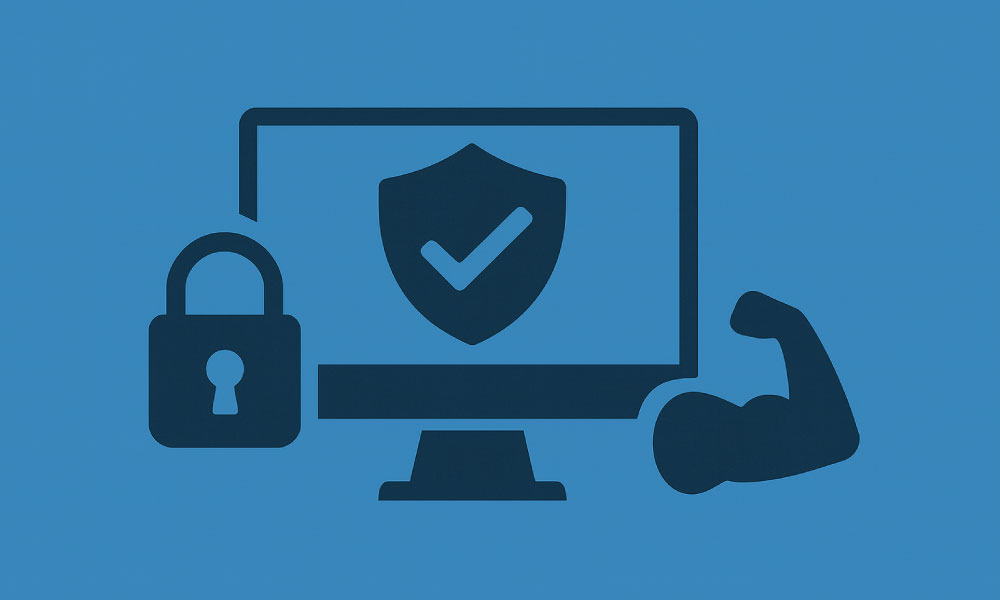In today’s digital-first economy, trust is no longer a nice-to-have, it is the foundation of every online interaction. Whether customers are buying products, sharing personal data, or engaging with brands on social media, they need to feel confident that the business they’re dealing with is secure, transparent, and reliable. This concept is known as digital trust.
But what exactly is digital trust, why does it matter, and how can businesses build and maintain it? Let’s explore.
What Is Digital Trust?
Digital trust is the confidence users place in a business’s digital platforms, systems, and interactions. It reflects the belief that a company will protect sensitive information, provide secure experiences, and act with integrity online.
In simple terms, digital trust means customers feel safe doing business with you online. It’s the combination of security, privacy, transparency, and reliability that allows companies to thrive in an increasingly competitive digital environment.

Why Digital Trust Matters
- Customer Loyalty and Retention
When customers trust your brand, they are more likely to return and recommend your services. Trust is a powerful driver of loyalty, and in digital markets where alternatives are only a click away, it becomes a key differentiator.
- Competitive Advantage
Businesses that prioritize digital trust stand out. A secure website, transparent policies, and consistent communication reassure users that they’re in safe hands, giving your brand a competitive edge.
- Revenue Growth
Trust directly impacts conversions. Customers are more willing to share payment details, sign up for subscriptions, or engage in long-term contracts when they trust your digital systems.
- Risk Management
A lack of digital trust exposes businesses to risks like data breaches, reputational damage, and customer churn. Prioritizing trust reduces the likelihood of these costly issues.

Key Pillars of Digital Trust
1. Security
- Protecting customer data from breaches, fraud, and cyberattacks.
- Implementing encryption, firewalls, and multi-factor authentication.
- Keeping systems updated to prevent vulnerabilities.
2. Privacy
- Respecting how customer data is collected, stored, and shared.
- Providing clear privacy policies and ensuring compliance with regulations like GDPR or CCPA.
- Giving customers control over their information.
3. Transparency
- Being honest about business practices, pricing, and terms of service.
- Communicating openly about security incidents or service changes.
- Avoiding misleading advertising or hidden fees.
4. Reliability
- Offering consistent, seamless user experiences across platforms.
- Delivering products and services as promised.
- Maintaining uptime and accessibility of digital systems.
Together, these pillars form the foundation of digital trust.

How Businesses Can Build Digital Trust
- Secure Your Online Presence
Invest in SSL certificates, HTTPS encryption, and secure hosting to protect user data. Display trust signals like padlock icons and verified payment gateways to reassure customers.
- Be Transparent with Customers
Make your privacy policies clear and accessible. If you collect data, explain why and how it will be used. Transparency fosters trust even before a customer makes a purchase.
- Deliver Excellent User Experience
A modern, professional, and mobile-friendly website sends a message of credibility. Broken links, slow loading speeds, or outdated designs can damage trust instantly.
- Leverage Social Proof
Encourage satisfied customers to leave reviews and testimonials. Positive feedback on platforms like Google, Trustpilot, or LinkedIn demonstrates that others already trust your brand.
- Protect Customer Data
Adopt best practices in cybersecurity and ensure your team is trained in safe digital behavior. Regularly audit systems for vulnerabilities and update software promptly.
- Communicate Consistently
Build credibility through reliable communication. Send order confirmations, provide timely updates, and respond quickly to inquiries. Consistency shows professionalism and care.
- Show Third-Party Validation
Use certifications, compliance seals, or partnerships with reputable organizations as proof of your credibility. Trust badges can significantly boost customer confidence.

The Future of Digital Trust
As technology evolves, so do customer expectations. Emerging trends that will shape digital trust include:
- AI and Machine Learning: Personalization powered by AI must balance convenience with respect for privacy.
- Blockchain Verification: Decentralized technologies offer transparent and tamper-proof records.
- Zero Trust Security Models: Businesses are shifting toward frameworks that assume no entity—inside or outside the network—can be trusted by default.
- Sustainability and Ethics: Customers increasingly associate trust not only with security but also with corporate responsibility and ethical practices.
Companies that adapt to these trends will stay ahead in building long-term relationships with digitally savvy consumers.

Digital trust is not just about technology
Digital trust is not just about technology, it’s about relationships. It’s the promise businesses make to customers that their data will be safe, their interactions will be transparent, and their experiences will be reliable.
In a world where skepticism is high and competition is fierce, digital trust is the key to growth, loyalty, and resilience. By investing in strong security, transparent practices, and customer-first strategies, businesses can build a trustworthy online presence that drives success well into the future.

